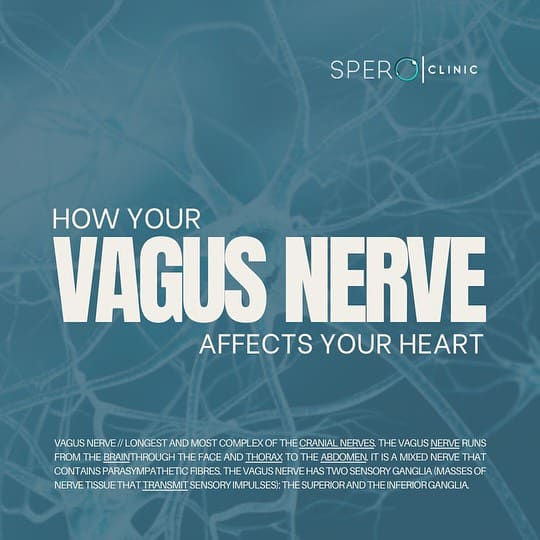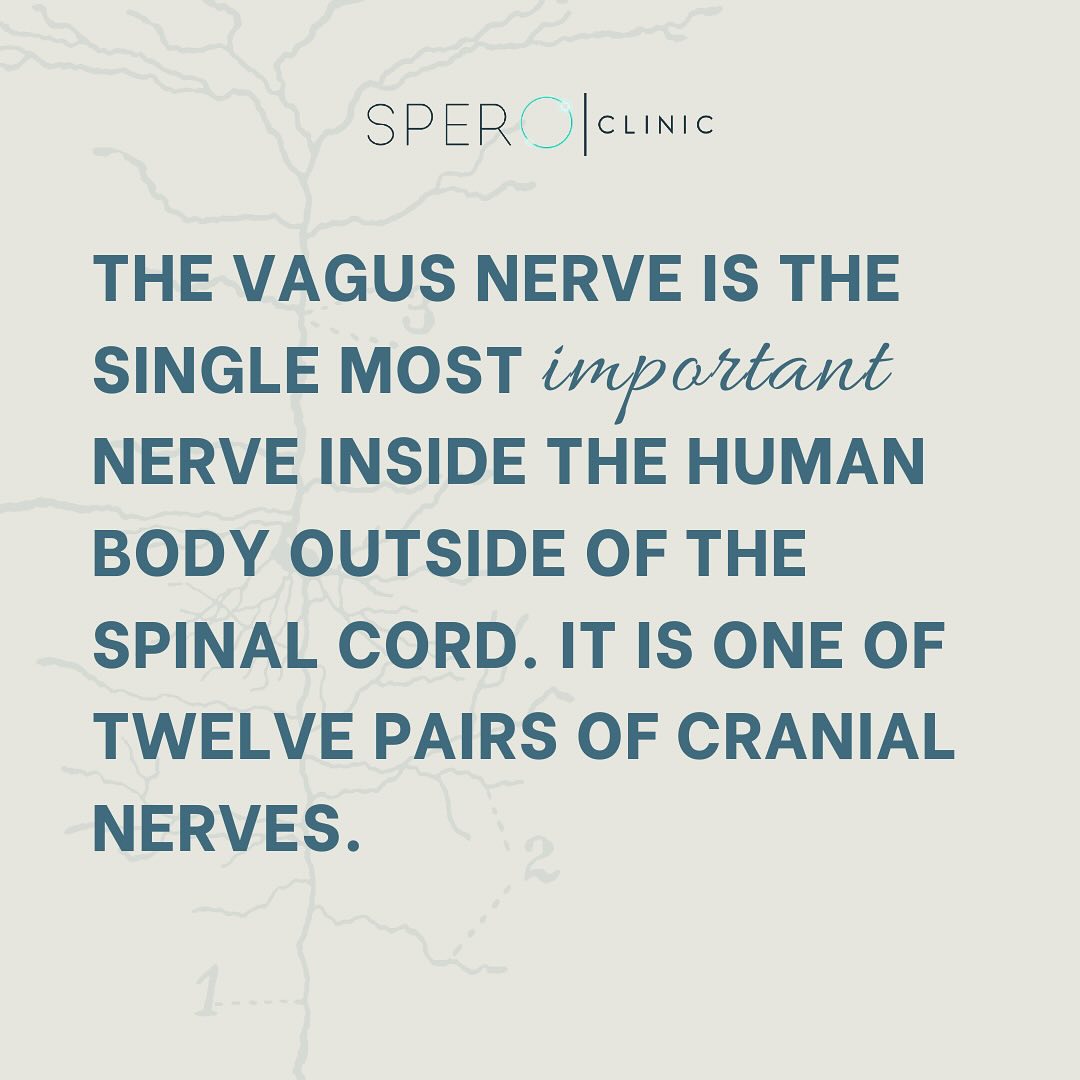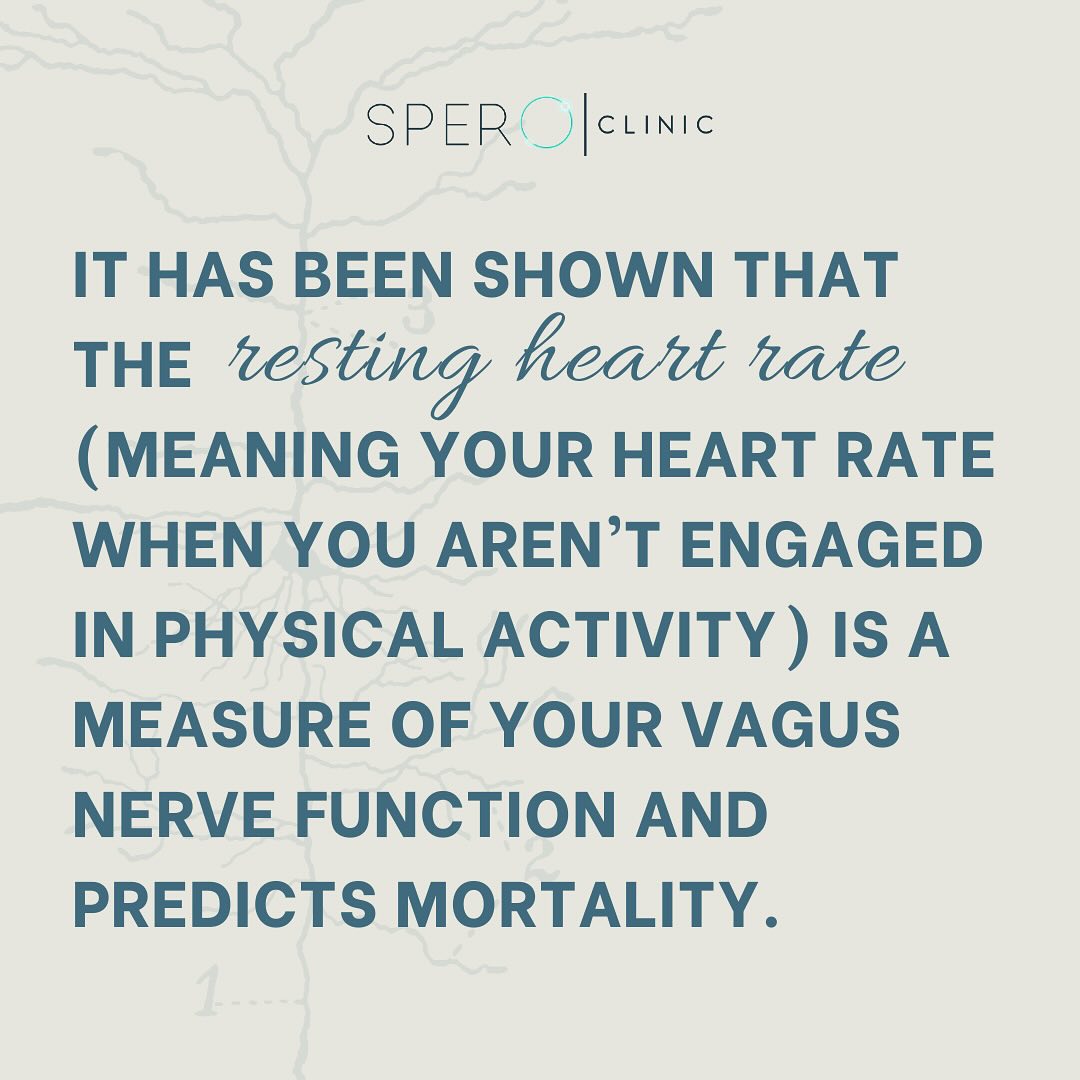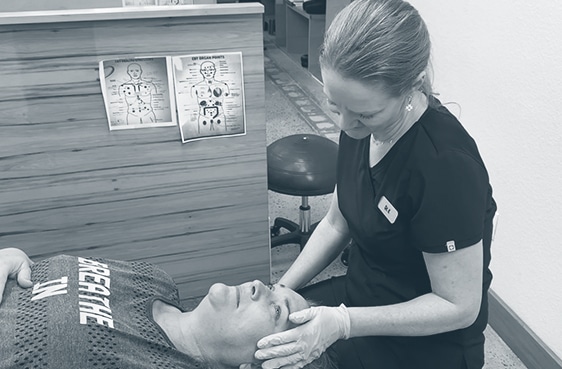Summary
As a result of nervous system dysfunction, and an underactive vagus nerve, Complex regional pain syndrome (CRPS) can affect the heart and lungs in a number of ways causing symptoms such as:
- Decreased Heart Rate Variability (HRV)
- Increased heart rate
- Autonomic imbalance
- Chest pain
- Pain that feels like it’s coming from your heart
- Increased blood pressure
- Shortness of breath
- Difficulty breathing
What is the Vagus Nerve?
The Vagus Nerve is the longest and most complex of the cranial nerves. The vagus nerve runs from the brain through the face and thorax to the abdomen. It is a mixed nerve that contains parasympathetic fibers. The vagus nerve has two sensory ganglia (masses of nerve tissue that transmit sensory impulses): The superior and the inferior ganglia.
Why is the Vagus Nerve Important?
The Vagus nerve is the single most important nerve inside the human body outside of the spinal cord. It is one of twelve pairs of cranial nerves. These nerves emerge directly from the brain and brainstem, as opposed to spinal nerves that emerge from the sides of the spinal cord. Each cranial nerve is paired and is present on both sides. The cranial nerves provide motor and sensory information mainly to the structures of the head and neck (think sensations like smell, taste, hearing, or vision, for example.) These nerves are numbered by Roman numerals. The Vagus nerve is the tenth nerve (CN X), and it is the longest cranial nerve.
The Vagus nerve (meaning “wandering nerve”) has multiple branches that diverge from two thick stems rooted in the cerebellum and brainstem that wander to the lowest viscera of your abdomen also connecting to your heart and most major organs along the way, such as the lungs. The Vagus nerve supplies motor parasympathetic fibers to ALL the organs except the adrenal glands, from the neck down to the transverse colon.
The Vagus nerve is responsible for many different tasks, including (but not limited to):
- heart rate
- digestion
- sweating
- speech
- coughing
- fainting
- vomiting
The Relationship between an Underactive Vagus Nerve & CRPS
Remember, people who suffer from CRPS also suffer from sympathetic dominance (the schoolyard bully), causing the parasympathetic nervous system to be suppressed and to shut down. This means that people who suffer from CRPS also suffer, by definition, from an underactive Vagus nerve.
What is the parasympathetic nervous system responsible for?
The parasympathetic nervous system is responsible (in general) for slowing and calming things down, as well as healing and sleep. The Vagus nerve forms an electric circuit that links our heart, digestive tract, and lungs to the brain. Let’s look at how this nerve affects specific organs just a bit closer.
How Your Vagus Nerve Affects Your Heart
In a normal heart, the resting heart rate is controlled by the parasympathetic nervous system. It has been shown that the resting heart rate (meaning your heart rate when you aren’t engaged in physical activity) is a measure of your Vagus nerve function and predicts mortality.
The Vagus Nerve & Inflammation
The Vagus nerve also controls inflammation in the body. This topic is so important that we will later devote an entire chapter to it. For now, I did want to mention, however, that Vagus nerve suppression will lead to inflammation of the tissue of the heart, causing tissue injury, preventing remodeling of cells, and leading to cell death. Vagus nerve stimulation, in turn, will prevent tissue injury and cell death in the heart.
The higher the Vagus nerve activity is, the greater the increase in the parasympathetic component of heart rate variability is, the slower your heart rate is, and the better the outcome is. In people who suffer from heart failure, heart rate is less regulated by parasympathetic activation. There is a clear relationship between increased heart rate and adverse outcomes, such as heart failure.
CRPS patients are particularly vulnerable to cardiac disease and malfunction. While no specific study has been performed to link the incidence of cardiac disease and CRPS, it is my belief that that such a link does exist.
Heart Rate Variability (HRV)
As explained earlier, people who suffer from CRPS also suffer, by definition, from an underactive Vagus nerve. Heart Rate Variability is a great indicator of Vagus Nerve function, which is why when we are examining the health of the nervous system in our new patients, we include an Heart Rate Variability (HRV) exam.
Why our CRPS testing is different:
It’s important to note that while the average patient suffering from CRPS has often seen Neurologists before, and have undergone countless tests, such as X-rays, MRIs, and nerve conduction tests, we do things differently at Spero Clinic.
When a patient enters our clinic, our first task is to examine the Central Nervous System thoroughly. At our clinic, our tests (and how they are interpreted) are all designed to detect one thing: nerve interference, affecting the body on a global scale, allowing it to malfunction and often causing excruciating unrelenting daily pain. None of our tests are painful or invasive. We believe a test should be taken for one reason only: in order to understand the patient’s body better, so that you can treat them in the most effective way possibly, or refer them somewhere else.
In order to understand the body better, one of the tests we do is a Heart Rate Variability (HRV) exam. HRV is non-invasive and does not hurt. It does not involve needles or any other invasive procedures.
What is Heart Rate Variability (HRV)?
HRV is the variation in the length of time between one heartbeat and the next. Most people think that ideally, this space should be exactly the same every time but in fact, the opposite is true. You want it to constantly change. We generally think of a number between 60 and 90 when we think of our heart rate. Your heart rate changes all the time. For example, when you inhale your heart rate speeds up and when you exhale it slows down. So the heart rate will actually vary between, say, 70 and 80. HRV is a measure of this naturally occurring differences in your heart rate. Heart Rate Variability is a great indicator of Vagus Nerve function.
How CRPS affects Heart Rate Variability (HRV)
HRV is almost like a crystal ball that allows us to gain insight into the health of the nervous system. It has been shown that people who suffer from CRPS have an increased heart rate and decreased Heart Rate Variability.
These findings were consistent with a general autonomic imbalance in those patients. In fact, the activity of the Vagus Nerve as measured by HRV has been shown by studies to reveal all sorts of crucial data. For example, it has been shown, after studying patients suffering from late state cancer, that patients with higher Vagus Nerve activity has substantially lower levels of tumor markers in their systems when compared to patients with lower Vagus Nerve activity. In addition, HRV allows us to determine how much functional reserve the patient has. Functional reserve could be likened to a “savings account” in your body. It’s what your body has in reserve to help in times of need from illness, injury and stress. HRV can also give us information regarding the nerve communication to the neurohormonal system, the immune system, the digestive system, the cardiac system, longevity, and can even predict whether someone is a good athlete.
How Your Vagus Nerve Affects Your Lungs
The Vagus nerve is one of the key players that help you to breathe and keep your lungs healthy. When the lung expands during normal breathing, the Vagus nerve sends a message to the brain that causes the bronchi to constrict. We cannot survive without oxygen for more than 5 minutes. Therefore, breathing is essential not only to our health, but to our very survival.
What is the Impact of Breathing Disorders on CRPS & Fibromyalgia?
There is an undeniable link between an overactive immune system, inflammation, and breathing disorders such as asthma, COPD (Chronic Obstructive Pulmonary Disease) and sleep apnea.
Sleep apnea is actually very common amongst people who suffer from Fibromyalgia and CRPS. When you are not breathing correctly, it will also affect your sleep at night, which in turn affects healing. Healing happens much more effectively during deep, quality REM sleep than your waking hours.
In addition, proper breathing is very vital to maintain the health of your brain and Central Nervous System. During relaxed abdominal breathing, your brainwaves will also show a pattern of relaxation. The Vagus nerve uses a neurotransmitter called acetylcholine that communicates with the diaphragm which is essential for breathing.
Why is breathing important for healing?
It is interesting that not only does the Vagus nerve help to regulate your breathing, but you can activate the Vagus nerve in return by using specific breathing, namely slow, deep breaths, breathing from the abdomen, and exhaling longer than you inhale. When we think of breathing, we tend to focus on oxygen only. The truth is that breathing serves other functions as well. Exhaling carbon dioxide is actually a powerful detoxification pathway in the body. We literally breathe out our waste (hence morning breath). When our lungs are not doing so effectively, we overburden our other detoxification pathways, such as the kidneys and liver.
When the lungs expand and contract it has an affect on the body that is almost like a pumping action, much like the heart, but bigger. It is responsible for tissue repair, lymphatic drainage of waste products, activation of the immune system, and dilation of blood vessels that is crucial for healing, to name but a few.
The Relationship of the Vagus Nerve & Chronic Pain Conditions
The Vagus Nerve works as a two-way highway, passing electrochemical signals between the organs and the brain. In chronic inflammatory disease, low Vagal tone (or function) causes inflammation in the body. And, high Vagal tone (or function) causes the reversal of inflammation.
Good communication between the immune system and the brain is therefore vital for controlling inflammation. Of course, the problem in the body of CRPS patients and other chronic pain conditions is that the Vagus Nerve is doing anything but communicating with the body. It has become more like a traffic-clogged freeway, where few signals are making it through in either direction.
We focus on restoring function to the Vagus Nerve without using medication or invasive procedures. Our main focus is to help patients enter remission by restoring the balance to the Nervous System.
Non-Invasive, All-Natural Treatment for CRPS & Other Chronic Pain Conditions
The Spero Clinic specializes in treating patients with chronic pain conditions
- Complex Regional Pain Syndrome (CRPS)
- Fibromyalgia
- Ehlers-Danlos Syndrome (EDS)
- Postural Orthostatic Tachycardia Syndrome (POTS)
- Long COVID
- Gastroparesis
- Amplified Musculoskeletal Pain Syndrome (AMPS)
- Chronic Epstein-Barr (Mononucleosis)
The World’s Leading Neurologic Rehabilitation Program
Dr. Katinka van der Merwe has gained a reputation of taking on hopeless and severe patient cases from all over the world using her patented Neurologic Rehabilitation Program by restoring balance to the Autonomic Nervous System.
Regardless of how long you’ve had chronic pain or how you’ve been treated before, it is possible to thrive again. You are not broken beyond repair.
Your body is amazing and capable of healing!
Our treatment process is not focused on managing nor suppressing pain. We do not feel like that approach is a permanent sustainable solution. The goal of our treatment is to rehabilitate the Central Nervous System, allowing the body to heal from within.
If you or a loved one is in chronic neurologic pain, schedule a free Zoom consultation with our chronic pain specialist to get more information about the Spero Clinic’s neurologic rehabilitation program.







